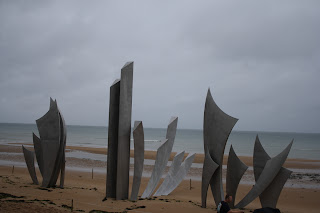 |
|
Martin "Whooshing" in front of the Toledo, Spain historic
city center from across the Tagus River
|
 |
| Martin Whooshing from the arena floor of the Royal Albert Hall after BBC Prom 29 |
Read about the experiences of The Eugene McDermott Scholars as they travel the world.

 |
|
Martin "Whooshing" in front of the Toledo, Spain historic
city center from across the Tagus River
|
 |
| Martin Whooshing from the arena floor of the Royal Albert Hall after BBC Prom 29 |
 | |
| Rome |
 |
| Tour de France |
 |
| Bastille Day Celebrations |
 | |
| Bastille Day Fireworks |
 | |
| Caen Memorial |
 |
| Avignon Palais des Papes |

It’s been almost a month now since Sachin and I left our friends at beautiful Brunnenburg Castle and made our way from the Italian Alps to the green pastures of Oxford University. After a couple of days of thunderstorms, missed trains, and general difficulties, we found our respective tiny, shabby flats in the heart of the city. The weather was chilly and grey. We had a week to explore the campus, check out the town, get inducted into our College (sort of like a House at Hogwarts), and get ready for class to start.
It didn’t take us long to find out that there are really two Oxfords. There is the Oxford thousands of tourists see every day – cramped, crowded, old, and dreary. It is an Oxford of fast food and souvenir shops, with nothing real to see but the antique stone walls of closed colleges and libraries. The other Oxford, however, is a different thing entirely. When you become a member of a College here, you enter a world of absurdly idyllic, peaceful, walled off courtyards and gardens, of hidden, back-alley pubs and local bookstores. The college we belong to, the New College of St. Mary, or just New College, is actually one of the oldest colleges here, founded in 1379. It was used as a filming location for Harry Potter and the Goblet of Fire and Tomorrow Never Dies. Parts of our Chapel were copied for use in Canterbury Cathedral. A segment of the original city wall, over a thousand years old, runs through our campus, and has been maintained by New College in perfect order for over seven centuries.
The first few days at Oxford were great. They were full of exploration, excitement, good food, and new friends. Then, in a catastrophic turn of events, classes started.
Sachin came here to study the economics of healthcare, and I wanted to familiarize myself with English novels and poetry. What we knew, but didn’t quite understand yet, was that Oxford courses are different from courses at American universities. Oxford is built upon the idea of the tutorial – an intense one-on-one co-exploration of a subject by a student and a professor. It isn’t a class so much as a collaboration. Sachin and I both came out of our first meeting with our professors amazed by two things. First, we were astounded by the expertise of our tutors. They are unbelievably knowledgeable – true leaders in their fields. The second thing that amazed us was the sheer amount of work we had gotten ourselves into!
I am reading over a thousand pages a week of literary works and their relevant criticisms. Sachin, in addition to his tutorial, has been tossed into a more traditional class his professor was already teaching on public economics. We now spend the vast majority of our time reading, writing, and talking to our tutors. Sachin and I try and get together once a day or so for dinner or ice cream, just as a way to get up and move around for a while. We are neck-deep in the most difficult academic work we have ever attempted. We have never covered so much complex information, in such detail, in so little time. But we have learned an incredible amount.
Sachin has written on theoretical reasons for redistribution of wealth and why charity doesn't work. He’s written on smoking as an economic externality and how smokers may actually, quite perversely, help society by dying earlier and not taking pension benefits. And he’s currently in the process of writing about the US healthcare system. He is studying the theory behind how healthcare should be provided in an ideal community, comparing the US system to those of the UK and Canada and France and Norway, and examining the pros and cons of Obamacare. He and his tutor are putting together ideas on how healthcare in America can be improved.
I have written on Defoe’s precise use of nonstandard capitalization to develop narrative voice and regulate pace and tempo in his novels. I’ve written on the 18th century literary debate between the ancients and the moderns – the “battle of the books” – and how Alexander Pope’s mock-epic poem The Dunciad can be read as a comment on the direction of literature in his age. And now I’m in the middle of examining the complex relationship between ideas of eloquence, knowledge, and evil in Milton’s Paradise Lost. All throughout my explorations, I am studying an overarching theme of density and pacing in British literature, and trying to tie it to ideas of the urban, the industrial, and the imperial.
It is difficult, as the four-inch-thick book I must continue reading after I finish this post stares at me from my desktop, to truly say that we are having a fun time here. Particularly after we spent last month living in a castle and having tea with a Princess. Here, we barely see the light of day. We live on Nando’s chicken and Kinder chocolate. Our academics are our lives. So it is hard to say we are having fun. But we will both say that this is an incredible experience, and we wouldn’t trade it for the world.